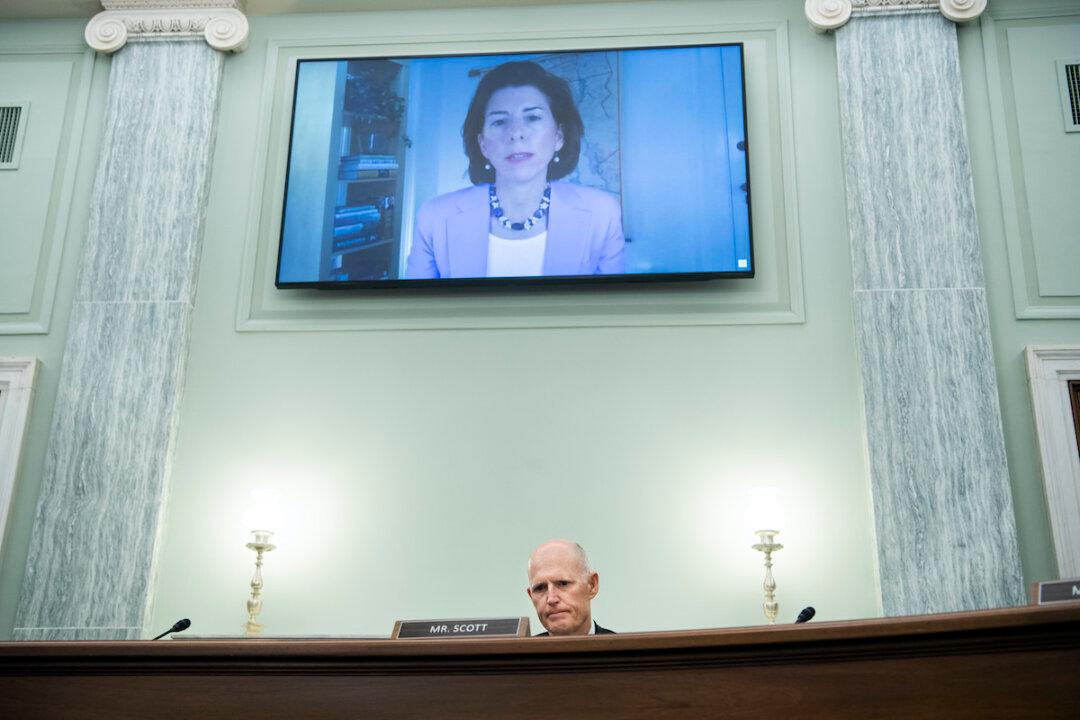President Joe Biden’s pick for commerce secretary said on Tuesday that she is willing to work with Congress to amend a federal law that grants Big Tech companies protection from legal liability for users’ content.
Gov. Gina Raimondo (D-R.I.), who has been tapped to lead the Commerce Department, was asked during her confirmation hearing about reforming Section 230 of the Communications Decency Act, which has been made a focal point amidst a sparring match between the federal government and social media companies over censorship and accountability.




